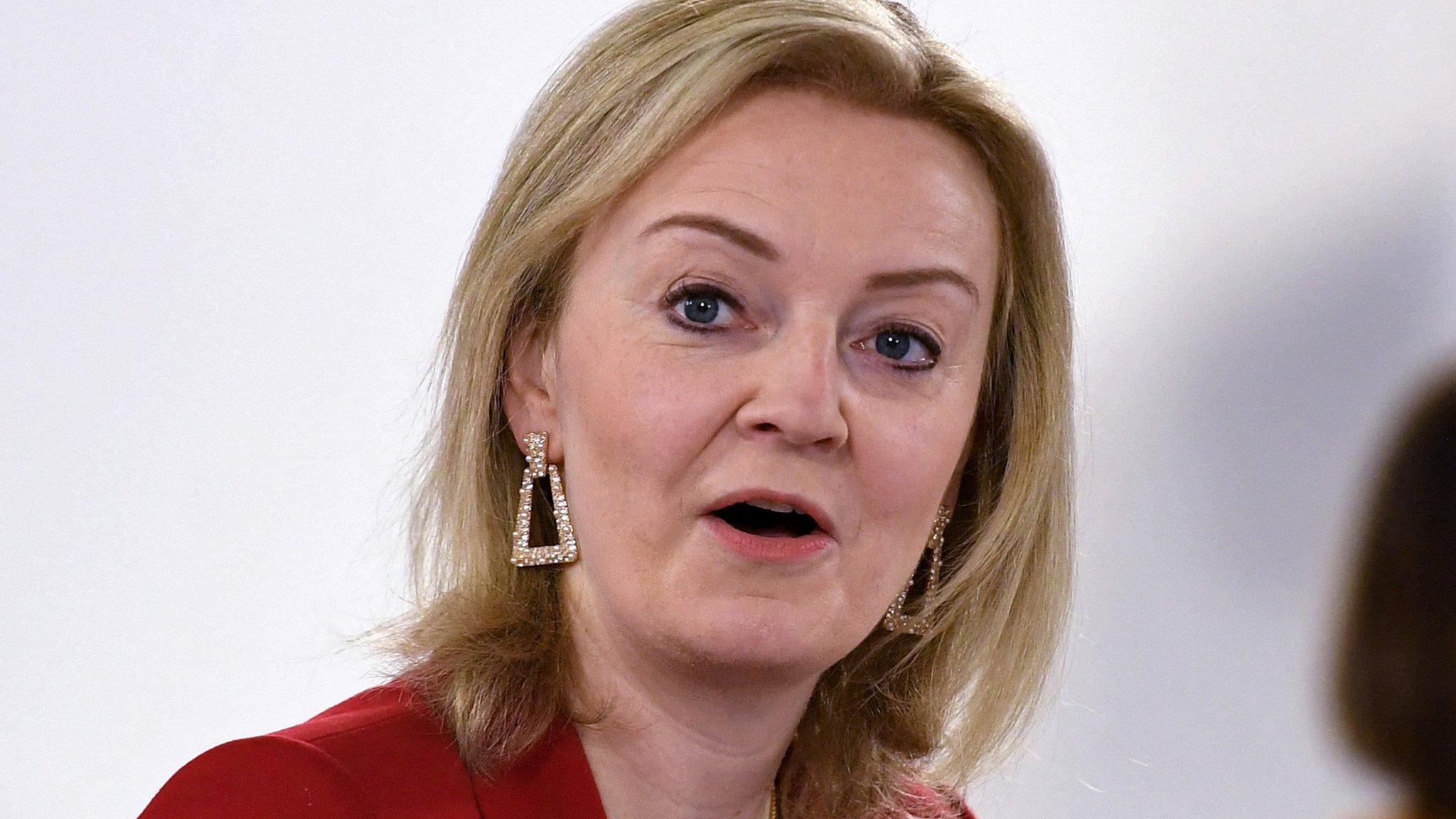NI Protocol: Government must publish protocol timetable - DUP
- Published
- comments
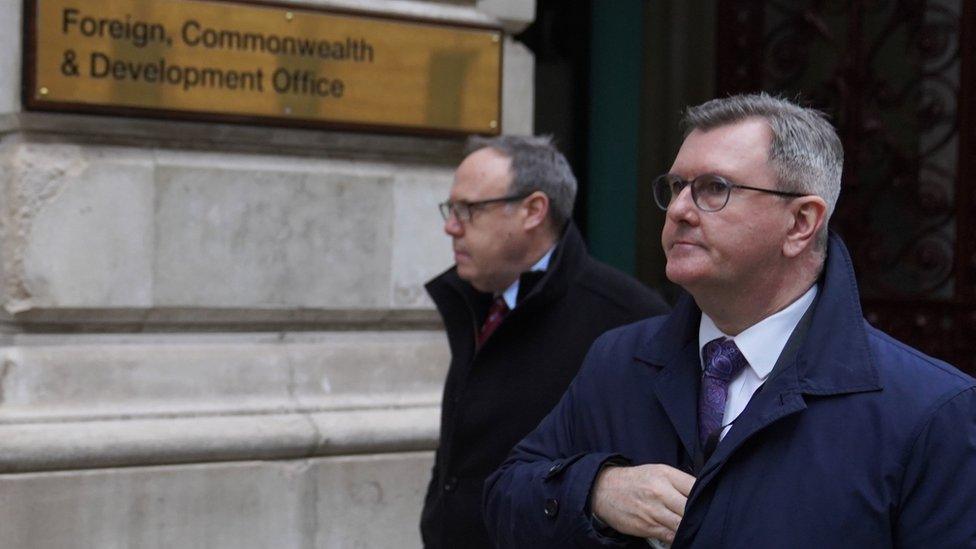
Sir Jeffrey Donaldson (right) met the foreign secretary in London on Monday, along with Lord Dodds (left)
The UK government must set out a timetable for how and when changes will be made to the Northern Ireland Protocol, the Democratic Unionist Party leader has said.
Sir Jeffrey Donaldson was speaking after talks with Foreign Secretary Liz Truss on Monday.
Earlier, he indicated he had paused a threat to pull DUP ministers from the Stormont Executive.
Mary Lou McDonald said she was assured the protocol would stay.
The Sinn Féin leader held separate talks with Ms Truss on Monday.
In a statement after his meeting, Sir Jeffrey did not repeat threats over the future of the executive.
Instead, he said he told the foreign secretary, the UK's new lead negotiator with the EU in post-Brexit talks, that the government must guarantee there will be no checks on goods travelling from Great Britain that will stay within Northern Ireland.
"For our part we will use all measures at our disposal to continue to oppose the implementation of the current arrangements flowing from the protocol and we have made it clear to the government that we will not be implementers of protocol arrangements," he continued.
The DUP leader said he urged the government to set out how it will deliver on proposed protocol changes outlined in a command paper last year, external.
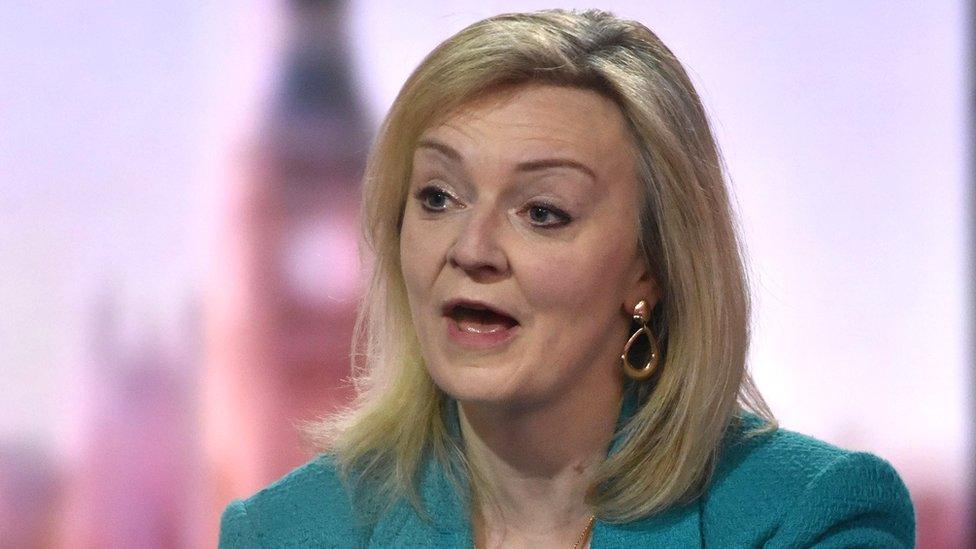
Foreign Secretary Liz Truss replaced Lord Frost as the UK's lead negotiator with the EU in post-Brexit talks
He added that the protocol had weakened Northern Ireland's governing arrangements.
"Balance can only be restored when Northern Ireland's place within the UK internal market is restored and the damaging protocol consequences are reversed," he said.
'Protocol here to stay'
The meetings with Ms Truss come a day after she said she would not accept a deal which meant goods from Great Britain being checked as they enter Northern Ireland.
The foreign secretary said on Sunday that she was prepared to trigger Article 16 to suspend the agreement if necessary.
The EU said it was "not too impressed" with Ms Truss' threat.
Speaking after her meeting with Ms Truss on Monday, Sinn Féin leader Mary Lou McDonald said she had been assured that the protocol was "here to stay".
Allow X content?
This article contains content provided by X. We ask for your permission before anything is loaded, as they may be using cookies and other technologies. You may want to read X’s cookie policy, external and privacy policy, external before accepting. To view this content choose ‘accept and continue’.
She added that the stakes were high in the negotiations and said the DUP's strategy "can't hold progress back".
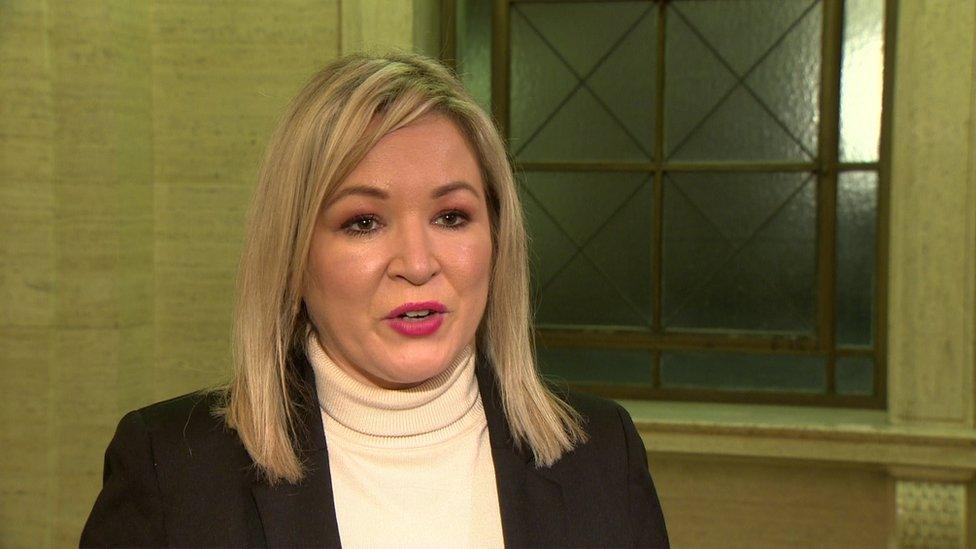
Michelle O'Neill accused the DUP of engaging in political stunts
Mrs McDonald's party colleague, Deputy First Minister Michelle O'Neill, added that the DUP had been "engaged in political stunts".
"I'm very sure that they are engaged in playing to the gallery," she said.
"I'm very sure that their position is more about the election that's upcoming rather than what's in the best interests of the people here."
'Foolish crusade'
SDLP leader Colum Eastwood described Sir Jeffrey's strategy over the protocol as a "foolish crusade" which is creating uncertainty and chaos.
"Parties that are serious about government should be seeking to work together to improve the lives of people in our communities," the Foyle MP continued.
"Instead we have establishment parties in a toxic race to see who can bring the government down first to meet their own selfish needs. People are sick of it."
Alliance Party leader Naomi Long said the DUP's actions were "beyond embarrassing at this stage".
"Could we all now just focus on ensuring devolution delivers for those who elected us during the last few weeks of this mandate?" she questioned in a social media post.

What is the Northern Ireland Protocol?
In 2019, the prime minister agreed a deal, known as the protocol, and for the last six months the UK has been attempting to renegotiate it.
The protocol is the part of the Brexit deal that prevents a hard Irish border by keeping Northern Ireland inside the EU's single market for goods.
That also creates a new Irish Sea trade border between Northern Ireland and the rest of the UK, with some goods needing to be checked as they enter Northern Ireland.
In July, the UK proposed an arrangement in which goods from Great Britain, which are due to stay in Northern Ireland, would not be checked and would have minimal paperwork.
Goods which are due to move onwards to the Republic of Ireland would be checked at Northern Ireland's ports.
The EU published its own proposals in October, which it said would significantly reduce, but not eliminate, checks on goods.
It has previously said that the easiest way to reduce checks would be for the UK to sign up to a Swiss-style agri-food agreement.
That would involve all of the UK following the relevant EU rules, something the government says it could not accept.

"I will not sign up to anything which sees the people of Northern Ireland unable to benefit from the same decisions on taxation and spending as the rest of the UK, or which still sees goods moving within our own country being subject to checks," Ms Truss said in the Sunday Telegraph., external
The EU's ambassador to the UK said it was not helpful to keep agitating the issue of triggering Article 16.
Ms Truss is due to hold two days of talks with her European Union counterpart, Maroš Šefčovič, over Thursday and Friday.


Sir Jeffrey feels that the UK government should provide imminently the plan to put in place the measures set out in the UK's command paper and also to list the timeline which they have in mind.
He is being careful not to set any dates in his statement, nor does he go as far as to suggest that the institutions at Stormont are under threat.
He does not, for instance, talk about things being unsustainable at Stormont if the protocol remains intact.
But what he does say is that he will use all measures at his disposal to continue to oppose the implementation of the current arrangements, whatever he means by that.

Ms Truss said that when she meets Mr Šefčovič, the EU's lead post-Brexit negotiator, she will be "putting forward our constructive proposals to resolve the situation".
It is not yet clear if these differ from the July proposals.
She has also repeated the UK's willingness to use the Article 16 mechanism of the protocol.
Article 16 sets out the process for taking unilateral "safeguard" measures if either the EU or UK concludes that the deal is leading to serious practical problems or causing diversion of trade.
Those safeguards would amount to suspending parts of the deal.
Ms Truss said: "I want a negotiated solution, but if we have to use legitimate provisions including Article 16, I am willing to do that.
"This safeguard clause was explicitly designed - and agreed to by all sides - to ease acute problems because of the sensitivity of the issues at play."
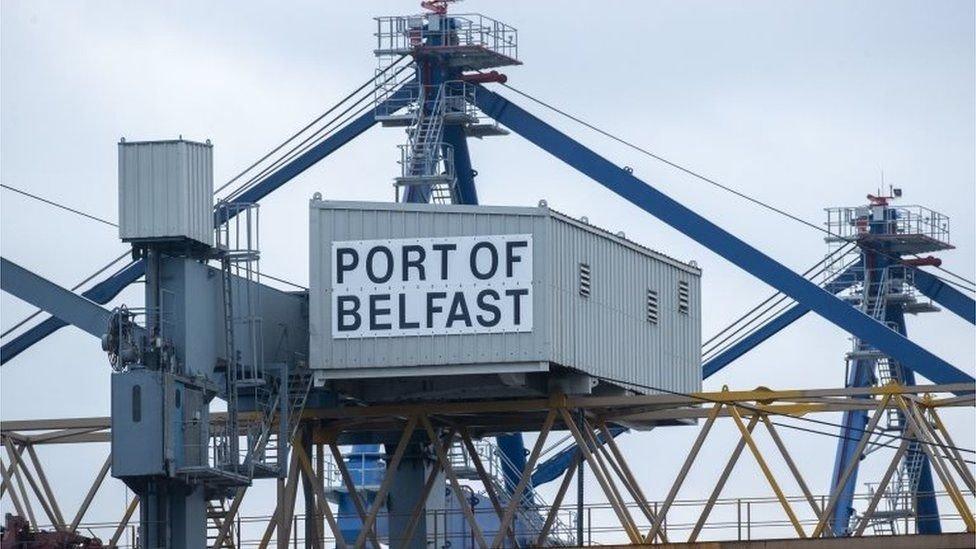
The protocol created a new trade border between Northern Ireland and the rest of the UK
The EU has said it does not believe the use of Article 16 is justified and that its deployment could lead to the collapse of the wider Brexit deal, the Trade and Cooperation Agreement.
João Vale de Almeida, the EU's ambassador to the UK, said it was not helpful to "keep agitating the issue" of triggering Article 16.
"We've heard this before from the government, so we're not surprised. We are not too impressed," he told Sky News.
"I think we should focus on - at least that's where we are focused on - is trying to find solutions for difficulties in the implementation of the protocol".
The EU was "even more eager" to find compromises, he added.
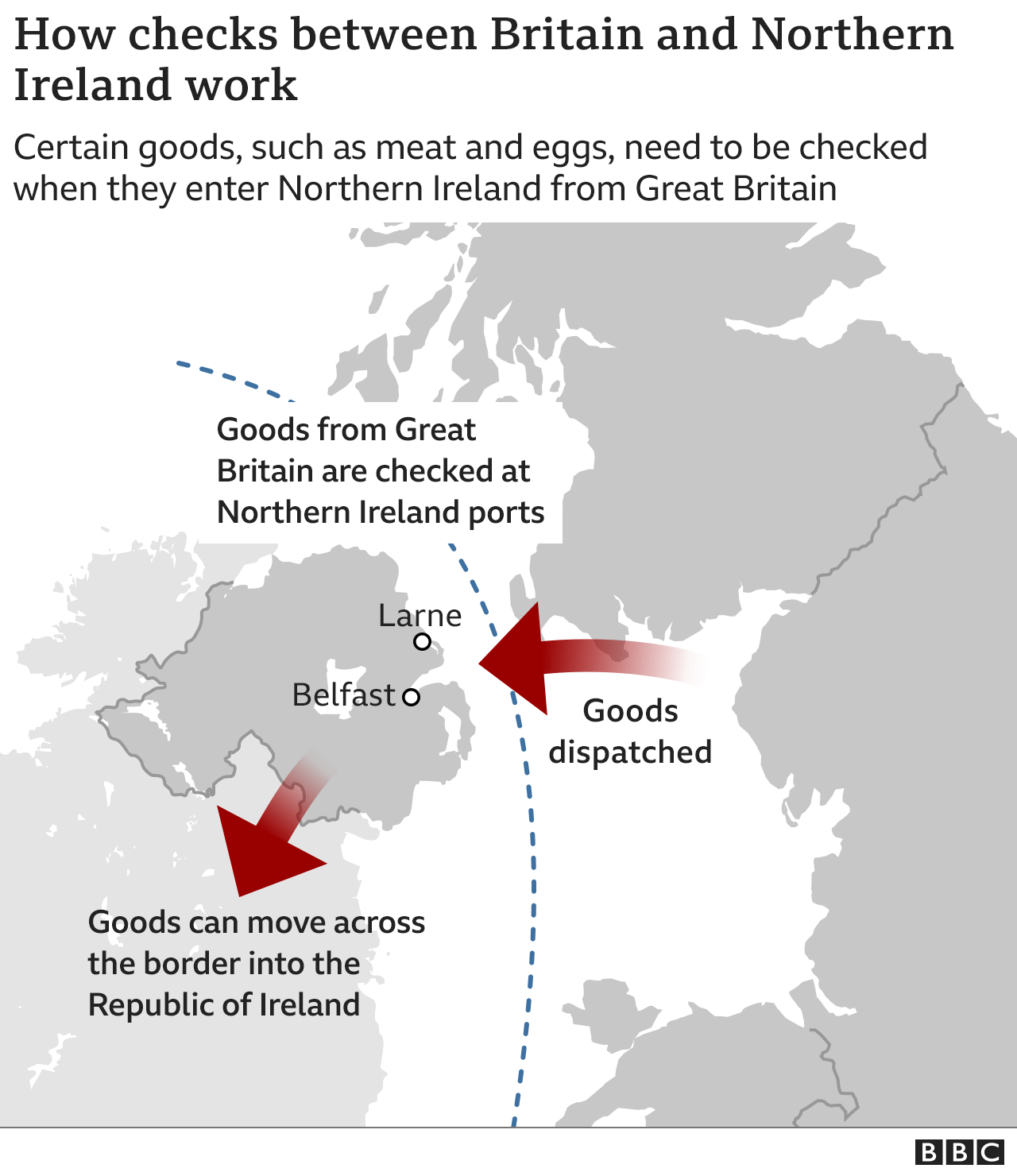

- Published17 May 2022
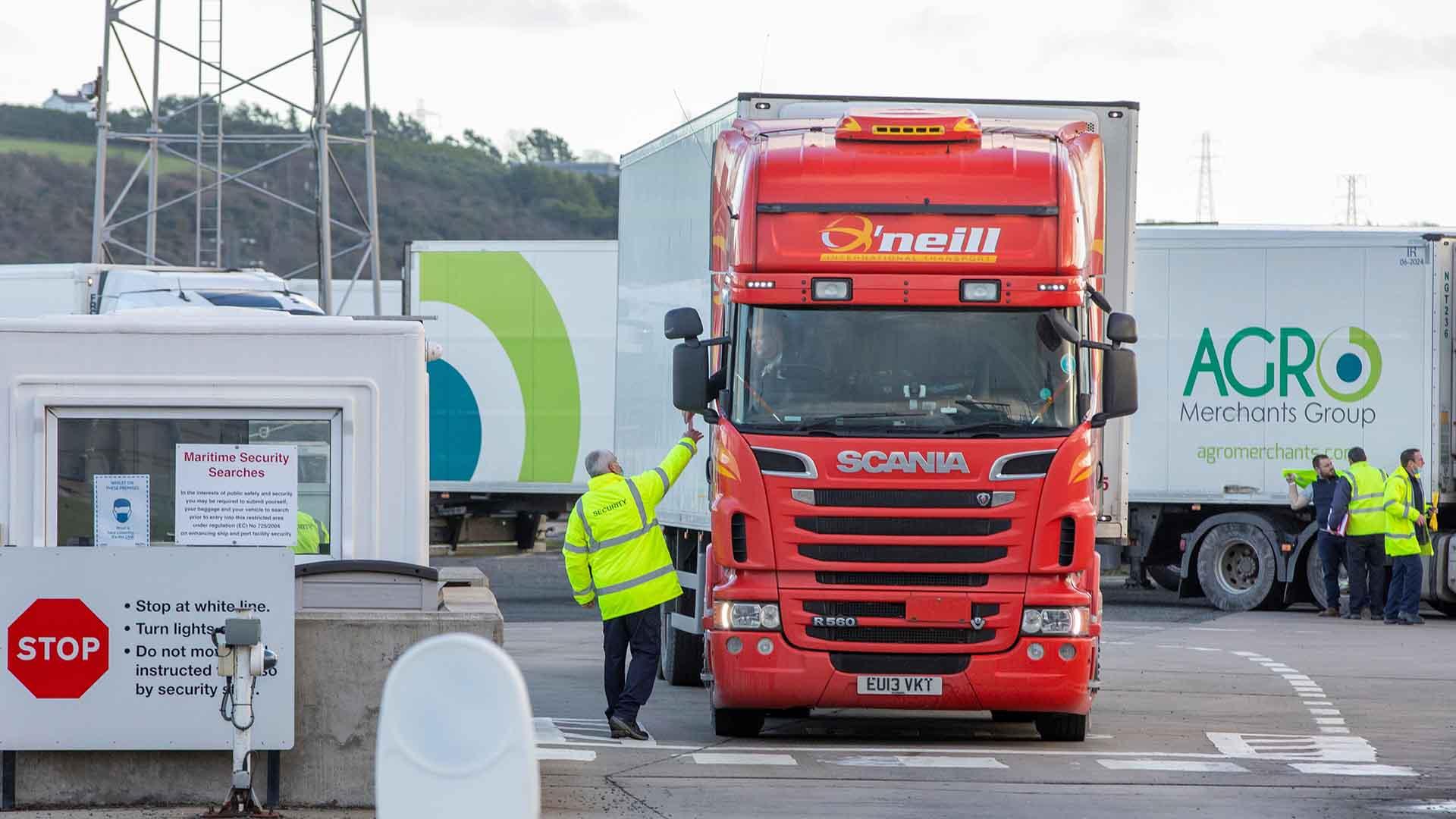
- Published24 December 2021
- Published2 February 2024

- Published9 January 2022
